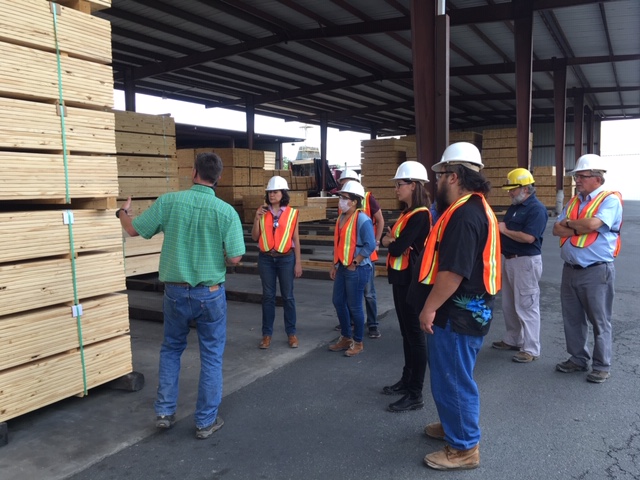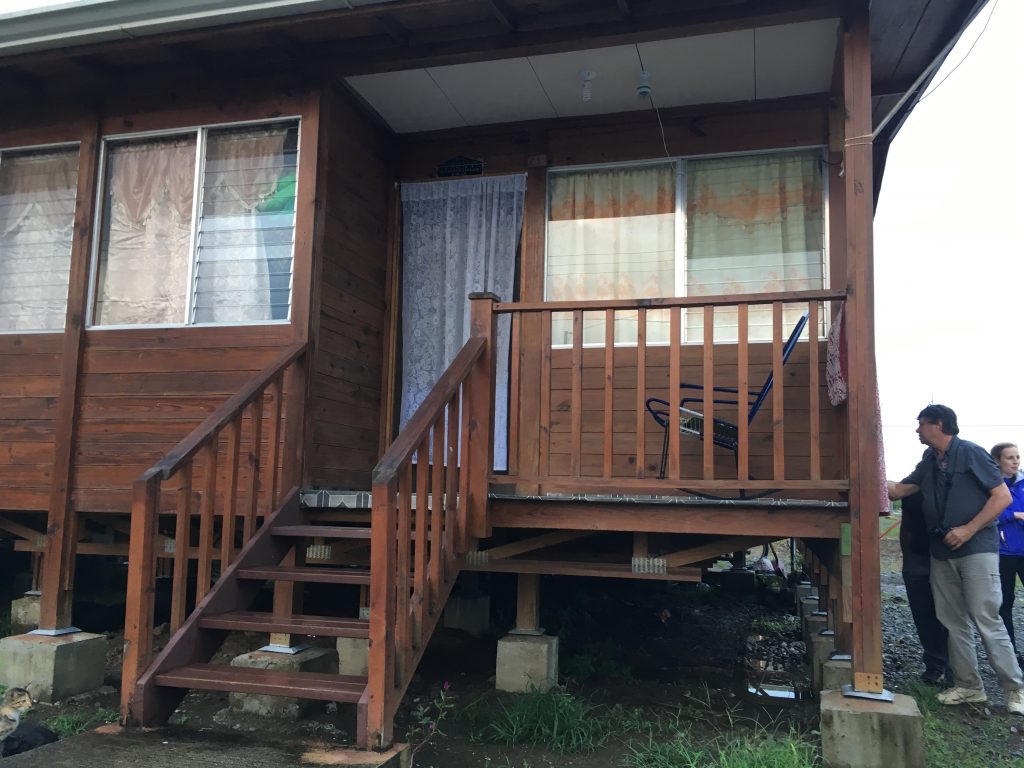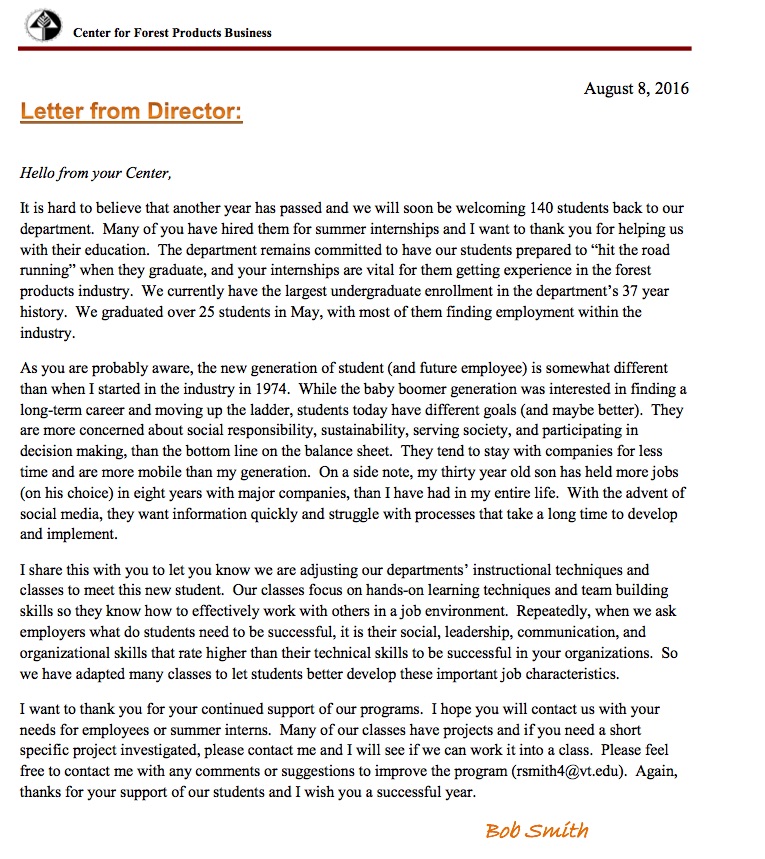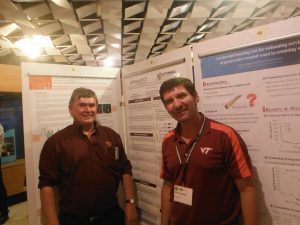Hello from your Center,
I am not sure how to start this letter for 2020. These are unprecedented times and I know your organization has been greatly impacted by this pandemic, just as we have at Virginia Tech. From a marketing viewpoint, nothing really makes sense. Hardwood lumber production is down, housing is up, and softwood lumber prices hit record highs this year. Exports are down and imports are down. We all are getting fatigued of various lockdowns and the daily reminder of how many people are sick, or what small business in our neighbored had to close its doors due to Covid-19. Yet, the economy keeps plugging away behind all the masks. The positive side of this is businesses are finding new ways to satisfy customer needs which will help them in the future and new businesses are being created that will serve us better after this pandemic has passed.
It is hard to believe that another year has passed and we welcomed 160+ students back in late August. Many of you have hired them for summer internships. When we visit with you during the student interviews, internships are one of the major factors’ employers are looking for when they hire new permanent workers. There is no substitute for good experiences in your mills or offices. We again thank you for helping our students gather this valuable experience. We currently have one of the largest undergraduate enrollments in the department’s 40+ year history. We virtually graduated over 50 students last May, with many of them finding employment within our industry.
As I mentioned last year, I have stepped down as Department Head the end of 2019 in preparation for my retirement. The Department hired Dr. Ching Huang from the Northern Arizona State University’s Forestry College. She started in January and unfortunately was hit dealing with the pandemic as part of her first duties. She is a Forest Economist by training, so she has a business background.
I want to thank you for your continued support of our programs. I hope you will contact us with your needs for employees or summer interns. Many of our classes have projects and if you need a short specific project investigated, please contact me and I will see if we can work it into a class. Please feel free to contact me with any comments or suggestions to improve the program (rsmith4@vt.edu). Again, thanks for your support of our students and I wish you a successful year.
To access the full report, please follow this link.
Sincerely,
Bob Smith





